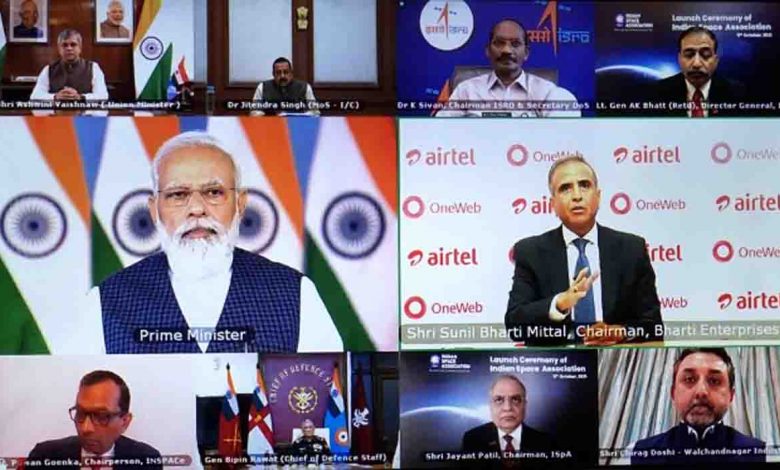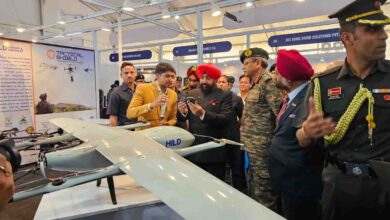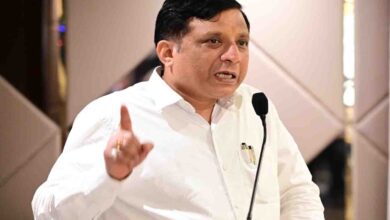PM launches ISpA to push space reforms

Tuesday, 12 October 2021 | PNS | New Delhi
Prime Minister Narendra Modi on Monday launched Indian Space Association (ISpA) and said it would act as a single-window and independent agency on matters related to space technology. The PM stressed that the Government was moving ahead with a “clear policy” regarding the public sector and is opening “most of these sectors” to private enterprises where the Government is not required.
The Prime Minister, who interacted with representatives of the space industry through video conferencing, said there had never been such a decisive Government in India as it is today, and major reforms that are happening in the space sector and space tech are an example of this.
The Prime Minister said the Government is moving ahead with a clear policy regarding public sector enterprises and the decision regarding Air India shows our commitment and seriousness.
“This the time for exponential, and not linear innovation. This is possible only when the Government plays the role of an enabler, and not the handler. Today, the Government is sharing its expertise, and providing launch pads for the private sector. The Indian Space Research Organisation (ISRO) is being opened for the private sector,” he said.
Space sector, the Prime Minister said, was once synonymous with the Government sector but his Government has worked to change this mind-set.
He congratulated all of those present for the formation of the ISpA which he said will act as a single-window and independent agency on matters related to space technology.
The Prime Minister said the Government’s approach to space reforms is based on “four pillars”. First, the freedom of innovation to the private sector. Second, the role of the Government as an enabler. Third, preparing youth for the future. And fourth, to see the space sector as a resource for the progress of the common man.
Modi said the space sector is a major medium for the progress of 130 crore countrymen. He remarked that for India, the space sector means better mapping, imaging and connectivity facilities for the common people.
Also, the space sector means better speed from shipment to delivery for entrepreneurs, this also means better security and income for fishermen and better forecast of the natural calamity, he added.
The Prime Minister remarked that a self-reliant India campaign is not just a vision but also a well-thought, well-planned, integrated economic strategy. A strategy that will make India a global manufacturing powerhouse by enhancing the skills capabilities of India’s entrepreneurs and India’s youth. A strategy that will make India a global centre of innovations, based on India’s technological expertise.
It is a strategy, he said, that will play a big role in global development, enhancing the prestige of India’s human resources and talent, globally.
The Prime Minister said that, during the last 7 years, space technology has been converted into a tool of last-mile delivery and leakage-free, transparent governance.
Modi gave examples of the use of geotagging in housing units for the poor, roads and infrastructure projects. Development projects are being monitored by satellite imaging. The space technology is being used in settlement of Fasal Bima Yojana claims, NAVIC system is helping fishermen, disaster management planning is also being carried out through this technology, the Prime Minister informed.
The Prime Minister emphasized the importance of making technology accessible to everyone. Giving an example of digital technology, he said that India is among the top digital economies today because we could make the power of data accessible to the poorest of the poor.
The Prime Minister expressed the hope that through the suggestions of the gathering today and active engagement of the stakeholders very soon a better spacecom policy and remote sensing policy will emerge.
The Prime Minister noted how the 20th-century tendency of trying to rule the space and the space sector divided the countries of the world. Now in the 21st century, India will have to ensure that space plays an important role in uniting and connecting the world, he said in his concluding remark.






